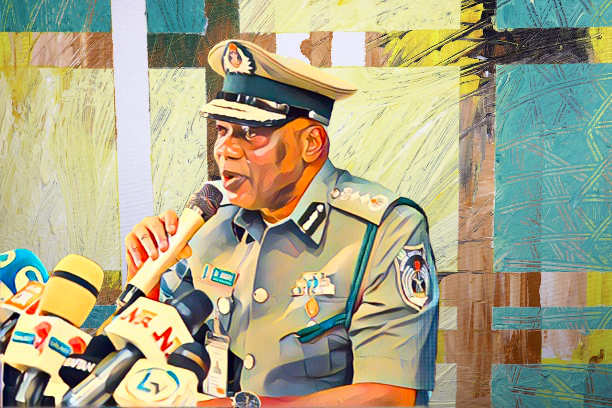Key Points
-
The digital vehicle verification platform modernises Nigeria Customs’ operations and strengthens compliance.
-
The digital vehicle verification platform empowers public access and reduces smuggling.
-
The digital vehicle verification platform enhances revenue collection and transparency nationwide.
The Nigeria Customs Service (NCS) has officially launched a digital vehicle verification platform. This is a big step towards stopping smuggling and making the country’s car importation process more open.
During the ceremony in Abuja to unveil the platform, Comptroller-General Bashir Adewale Adeniyi said that the Customs Verification Management System (CVMS) marks the start of a new era of responsibility and efficiency for the service.
According to Adeniyi, the system is part of the NCS’s larger digital transformation strategy under its Trade Modernisation Project.
This project aims to automate customs processes and close manual gaps that allow for corruption and loss of revenue. He said that the new plan is not just about technology; it is also about getting people to trust how Nigeria clears and checks imported cars again.
Verification goes digital with access in real time
The new system lets car buyers, dealers, and importers use the Vehicle Identification Number (VIN) to check the authenticity of any imported vehicle through the digital vehicle verification platform. The system will show if all customs duties were paid, if the import was properly documented, and if the vehicle went through legal ports of entry.
The CVMS gives you results in minutes, unlike the old paper-based verification process that took days and was full of mistakes. Users can check out vehicles through mobile devices or the web for a fee of 15,000. The system works with NCS databases and regional command networks, so officers can see real-time information about the status and movement of vehicles.
According to a report by the Punch news, Adeniyi stressed at the launch that the project was created with the help of Trade Modernisation Nigeria Limited and local tech partners to make sure that data is safe and operations are reliable. He said that the platform is in line with President Bola Tinubu’s order to use digital tools to make public services better and manage the economy better.
Ajibola Adedoyin, the President of the Association of Motor Dealers of Nigeria (AMDON), praised the effort but told Customs to make sure that the process stays open and clear for small-scale dealers, who make up the majority of Nigeria’s auto market.
Big money at stake in the fight against smuggling
Vehicle smuggling has been one of the NCS’s biggest problems for years. It costs the country a lot of money and brings in a lot of stolen or improperly cleared vehicles.
Adeniyi said that the digital vehicle verification platform would be a game-changer in dealing with these problems. He said it would let security agencies, customs officers, and legitimate importers share data easily and find fake imports before they get to the market.
He also said that the platform would help Nigeria’s non-oil revenue base a lot by making it easier for people to pay their customs duties. According to estimates from within the agency, duties on imported vehicles make up almost 25% of Customs’ yearly income.
Galadima Saidu, the Deputy Comptroller-General in charge of ICT, said that the CVMS would be updated on a regular basis to add more verification features, like insurance and chassis registration data, to make it easier to trace. He said that the system will help find cars that have been smuggled through nearby countries like Benin Republic, where many importers don’t pay the right amount of duty.
Experts say that as the platform goes live across the country, its success will depend on people being aware of it, different agencies working together, and enforcement officers being able to adjust to the new system. For customers, it promises a future where checking the legitimacy of an imported car is as easy as using a mobile app. This is a small but important step towards cleaning up one of Nigeria’s most corrupt sectors.



